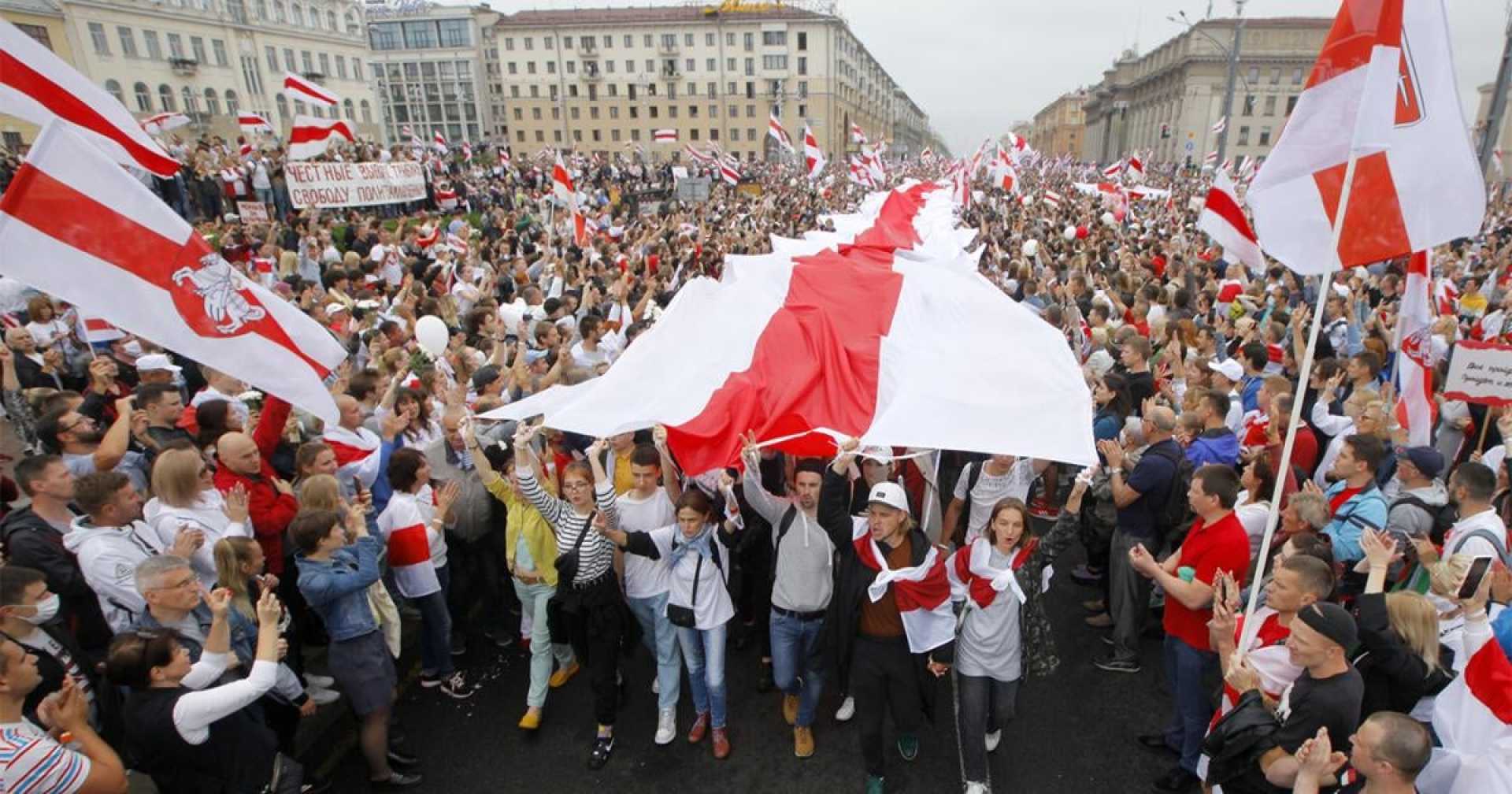Politics
Belarus Opposition Calls Sunday’s Election a ‘Sham’ Amid Repression

MINSK, Belarus — Belarusian opposition leader Svetlana Tikhanovskaya has dismissed Sunday’s presidential election as a “sham,” accusing the regime of President Alexander Lukashenko of staging a military-style operation to maintain power. The vote, which will likely extend Lukashenko’s 30-year rule, has been widely criticized for its lack of democratic legitimacy.
Lukashenko, who has ruled Belarus since 1994, faces no credible opposition in the election. Four other candidates on the ballot were carefully selected to pose no challenge. Independent observers are barred from monitoring the process, and the regime has intensified repression to prevent a repeat of the mass protests that followed the 2020 election.
In 2020, Tikhanovskaya, a political novice, ran in place of her jailed husband and claimed victory after Lukashenko declared an 80% win. The disputed results sparked nationwide protests, which were brutally suppressed by riot police. Thousands were arrested, and key opposition figures were imprisoned or forced into exile. The European Union refused to recognize Lukashenko’s legitimacy, imposing sanctions on his regime.
“This is not an election; it’s a performance staged by the regime to hold on to power,” Tikhanovskaya told the BBC. She urged Belarusians to reject the vote and called on the international community to deny recognition of the results. However, she cautioned against public protests, citing the regime’s intensified repression and the pervasive fear among citizens.
Belarusians interviewed by the BBC described a climate of fear, with many avoiding public discussions of politics. Some communicate only through encrypted messages, which they delete immediately. Open political activism has been effectively extinguished, according to those who remain in the country.
Bysol, a nonprofit organization aiding those at risk, reports a surge in evacuation requests, with 30 to 40 applications monthly. Since 2020, the group has helped over 1,500 people flee Belarus. It also supports former political prisoners rebuilding their lives in exile.
Yana Zhuravleva, a veterinarian and former protester, spent three years in prison for participating in the 2020 demonstrations. She described harsh conditions, including constant surveillance and limited rights. “You can’t go to the sports hall, your only letters are from relatives, and you get fewer visiting rights,” she said. After her release, she moved to Poland, where she struggles with depression and anxiety.
The regime’s repression extends beyond prisons. Natalia, a pseudonym for a former protester, was detained twice for participating in demonstrations. She described being held in overcrowded cells with constant light and sleeping on wooden floors. “It really shook my sense of security,” she said.
Tikhanovskaya believes the regime’s crackdown reflects its fear of another uprising. “The trauma of 2020 is still alive, and Lukashenko has to eliminate any possibility of protest,” she said. Despite the grim outlook, she remains hopeful for long-term change. “2020 was a huge shift in mentality in Belarus. I don’t know how long it will take, but that shift will not disappear.”
The European Union has condemned the election as undemocratic and pledged continued support for Belarusian civil society. Anitta M. Hipper, a European Commission spokesperson, called the vote a “total sham” and announced a 30 million euro aid package for Belarusian civil society, bringing total EU support to 170 million euros since 2020.
Meanwhile, Russian Foreign Minister Sergei Lavrov dismissed the possibility of peace talks with Ukraine, citing ongoing Western military support for Kyiv. Lukashenko, a close ally of Russian President Vladimir Putin, has allowed Russia to use Belarus as a staging ground for its invasion of Ukraine, including the deployment of nuclear weapons.
As Belarusians prepare for Sunday’s vote, many see little hope for immediate change. “No one says it openly, but we feel like there are no prospects,” Natalia admitted. For now, the focus has shifted to preserving Belarusian culture and language, a subtle form of resistance in the face of relentless repression.












